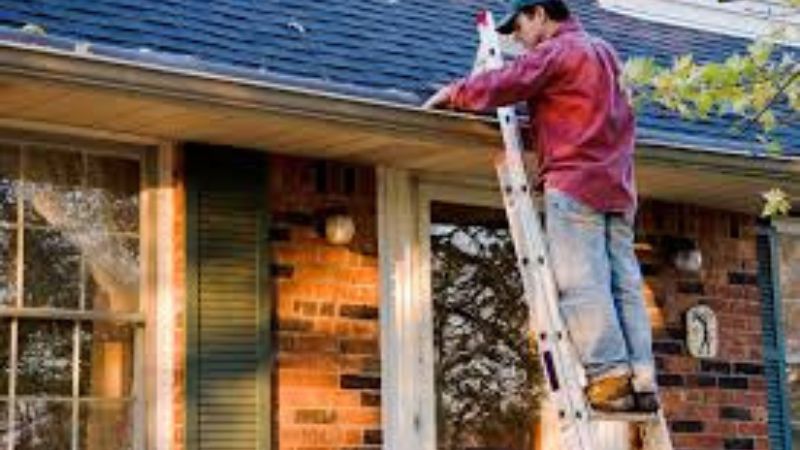Introduction
Owning rental property can be a profitable investment, but it comes with responsibilities. One of the most important aspects of being a landlord is ensuring the property remains in good condition. Proper maintenance not only helps preserve the value of your investment but also keeps tenants happy, reduces turnover, and prevents costly repairs in the future. A well-maintained rental property reflects professionalism and attracts quality tenants who are likely to care for the home. This article will guide you through effective ways to maintain your rental property, from regular inspections to preventive measures.
Importance of Rental Property Maintenance
Keeping a rental property in good shape is not just about aesthetics—it’s a legal and financial necessity. Many states and countries have housing standards that landlords must meet to ensure safety and habitability. Neglecting maintenance can lead to legal issues, tenant complaints, and even loss of rental income. A well-maintained property also appreciates in value over time, making it a better long-term investment.
Conduct Regular Inspections
Routine inspections are one of the most effective ways to maintain your rental property. They allow you to identify problems early before they become expensive repairs. Inspections can be scheduled quarterly, biannually, or annually, depending on the property’s condition. During an inspection, check the plumbing for leaks, the roof for damage, and appliances for proper functioning. Also, ensure safety equipment such as smoke detectors and carbon monoxide alarms are in working order. Always provide tenants with notice before conducting inspections to respect their privacy.
Prioritize Preventive Maintenance
Preventive maintenance helps avoid costly repairs in the long run. Examples include servicing the HVAC system before each season, cleaning gutters to prevent water damage, and sealing gaps or cracks that could lead to pest infestations. Regularly check electrical wiring, plumbing, and heating systems to ensure everything is working efficiently. Preventive maintenance can also include repainting walls, re-caulking bathrooms, and replacing worn-out carpets or flooring to keep the property looking fresh.
Respond Promptly to Repair Requests
One of the biggest frustrations for tenants is delayed repair work. When tenants report a maintenance issue, address it promptly. Quick responses show tenants that you care about their comfort and safety, which builds trust and encourages lease renewals. For urgent issues such as burst pipes or broken heating systems in winter, have a reliable list of contractors or maintenance personnel who can respond quickly.
Maintain the Exterior
First impressions matter, and the exterior of your property is the first thing potential tenants see. Keep the lawn trimmed, remove weeds, and maintain landscaping to enhance curb appeal. Repair any cracks in walkways, repaint faded walls, and ensure gutters and downspouts are clean. If your property has parking areas, keep them well-lit and in good condition to ensure tenant safety.
Ensure Safety and Compliance
Safety is a top priority when maintaining rental property. Check that stair railings are secure, windows lock properly, and there are no trip hazards. Install adequate lighting in common areas and outdoor spaces. Ensure your property complies with local building codes and health regulations, including proper ventilation, plumbing, and electrical systems. Safety features like fire extinguishers, emergency exits, and smoke alarms should be regularly tested.
Upgrade and Renovate When Needed
While basic maintenance keeps a property functional, periodic upgrades increase its value and attract higher-quality tenants. Simple improvements like modernizing the kitchen, updating bathroom fixtures, or installing energy-efficient appliances can make a big difference. Tenants are more likely to stay long-term if the property feels modern, comfortable, and well cared for.
Build Good Relationships with Tenants
Good communication with tenants can make maintenance easier. Encourage tenants to report issues early and maintain open lines of communication. When tenants feel comfortable reporting problems, you can address them before they escalate. Consider providing tenants with a maintenance request form or an online portal for convenience.
Budget for Maintenance Costs
Set aside a portion of your rental income for repairs and maintenance. Experts recommend allocating at least 1% to 3% of the property’s value annually for upkeep. Having a dedicated maintenance budget ensures you can handle unexpected repairs without financial strain.
Hire Professional Help When Needed
Some maintenance tasks require specialized skills, such as electrical repairs, plumbing work, or roof replacement. Hiring qualified professionals ensures the job is done correctly and safely. Establish a network of reliable contractors so you can quickly address maintenance needs.
Conclusion
Maintaining a rental property requires diligence, planning, and a proactive approach. By conducting regular inspections, prioritizing preventive maintenance, responding quickly to tenant concerns, and budgeting for repairs, you can keep your property in excellent condition while ensuring tenant satisfaction. A well-maintained property is not only more profitable but also easier to manage in the long term.
FAQs
1. How often should I inspect my rental property?
It is generally recommended to conduct inspections every 6 to 12 months, though more frequent inspections may be necessary for older properties or those with a history of maintenance issues.
2. Who is responsible for repairs, the landlord or the tenant?
In most cases, landlords are responsible for repairs that affect habitability and safety, while tenants are responsible for damage they cause through negligence.
3. How much should I budget for property maintenance?
A common rule of thumb is to budget 1% to 3% of the property’s value annually for maintenance costs.
4. Should I hire a property management company?
If you own multiple properties or live far from your rental, a property management company can handle maintenance, tenant relations, and legal compliance for a fee.
5. What is preventive maintenance for rental properties?
Preventive maintenance includes routine tasks like HVAC servicing, gutter cleaning, and sealing cracks to prevent larger issues from developing.
